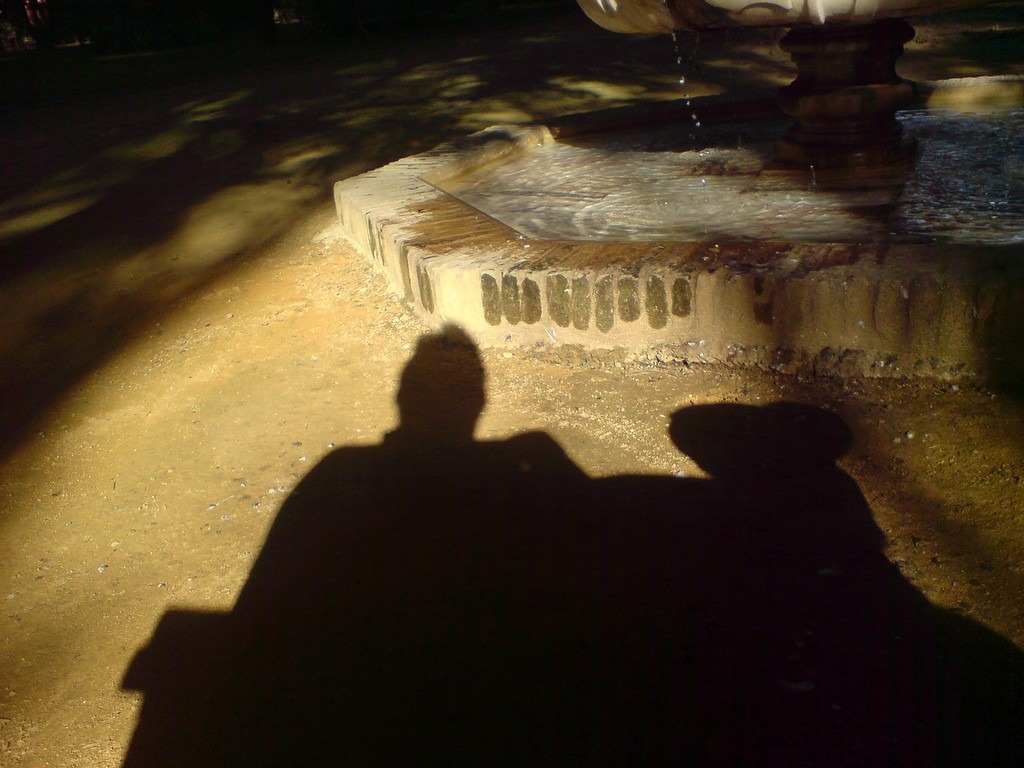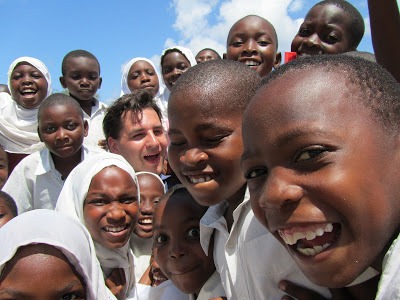
Do you remember what you got up to every day this past week?
You probably do, though you might also be drawing a few blanks.
I think the first reaction is like “Yeah, of course I do.”
And then a second later: “Oh wait, what did I do that day?” or “What did I have for lunch on Friday?”
“Like successive waves crashing on a rocky shore, the first level of memories are immediate.”
We perceive everything through our senses. Like successive waves crashing on a rocky shore, the first level of memories are immediate. The stuff we see, hear, touch, smell and taste every moment of every day. Our brains filter out what may be important before it even hits our conscious mind or else it is believed we’d be overwhelmed. It’s a defence and coping mechanism.
Our brains tell us what is important or not, whatever can be managed on autopilot is.
The morning routine is a good example. Most of the time we’re barely conscious, particularly if we’ve been repeating the same routine for a long time. We may not do it with our eyes closed but half our brain is elsewhere. We can think about other stuff, or in my case not so much at all until I have a coffee.
As long as I don’t have anything special or urgent going on, I’ll get up in the morning after a short snooze, get in the shower while yawning, brush my teeth, get dressed, be done. I don’t have that many clothes so that’s a conscious choice I’ve simplified (I believe many men tend to). I haven’t gone to the extend Mark Zuckerberg has dressing in the same way every day, though I guess the idea is similar.
As Forrest Gump said about no longer having to worry about money no more afterLieutenant Dan invested in some fruit company: “That’s good. One less thing.”
“Short-term memory is the frothy surf at the base of the rocks.”
Back to our waves crashing on the rocks, short-term memory is a little like the frothy surf created by the waves receding at the base of the rocks. The surf lasts for a short while as one wave recedes and another arrives. This is where our brains start manufacturing memories from our perceptions and storing them. It doesn’t necessarily store them for long, just a few things for a few seconds. The name of the person we were just introduced to at a party; that a couple of minutes or an hour later we’ve probably already forgotten.
Another easy analogy to stay with an aquatic theme is the gold fish one, with a memory span of a few seconds, just long enough to circle his bowl and rediscover the view with a brand new and fresh perspective. That’s short-term memory. Guy Pearce in Memento shares similar issues with the goldfish, with the tattoos as an advantage.
There are well known tricks to improve our short-term memory. I imagine we all use them to a certain extent, though consciously practicing them can really make a difference.
Firstly repetition increases the chances of remembering something. Imagine someone just tells you a door code on the phone and you have to repeat it to yourself a couple of times before you get to it and type in the code. I think we’ve outsourced a lot of this stuff to our smart phones though it’s still a good practice on a regular basis, if only to better remember names of people at parties.
The second common trick is called chunking.
7804291427
78 04 29 14 27
780-429-1427
Having had a quick glance at the numbers, which one do you think is easier to quickly remember? Depending on how phone numbers are usually written where you’re from, one version might seem easier than another. In France where I grew up, phone numbers are usually set by two digits separated by spaces. In the UK and US, I believe they are more often separated in three or four digits with hyphens.
Much about memory still baffles scientists. Every new piece of information they uncover raises more questions than it answers about how it all works.
For a long time it was believed memory was stored in one area of the brain, now they’re pretty sure it’s processed, spread out and distributed across the whole brain’s neural network.
Moreover different kinds of memories and the way they’re remembered live in different parts of the brain: information like phone numbers or addresses, emotional and sensory links like eating a meal reminding us of childhood, skills like riding a bike, etc.
Scientists also understand little about how we remember things, retrieve memories from wherever they’re stored.
“Long-term memories are basically the water waves are made of.”
In my waves analogy, as far as I can determine from the reading I’ve done to prepare for this, long-term memories are basically the water. It’s all there; the waves are made of it, though they’re also distinct.
We have everything stored, except the stuff we’ve forgotten. And that’s only until we remember it again, those water particles brought back to the surface into a new wave and crashing over the rocks.
I like this image because I think that’s how it feels when memories emerge seemingly out of nowhere.
I find it strange when I hear other people tell me of their very early age memories. If only given a short time to consider it, I’ll say I remember very little of my early childhood. I only recall a few vague images and scenes from about the age of four. Very little seems to have stuck from my time lived in the U.S. and I wonder if half of it was manufactured from photos and stories I heard from my family rather than my own recollection.
We had a half sunken basement level in the house with a room I believe was next to the garage; our play area. A couple of brief images come to mind playing with Transformers, wooden bricks and LEGO toys in there.
“I was very excited about playing the brand new digger toy at Manorhaven Beach Park.”
We’d go to the nearby Manorhaven beach park, to the playground. I was very excited about a brand new digger toy I played with. And this is the funny thing about memory. I’d completely forgotten about this digger toy until I started writing this and questioning what my earliest memories were. Retrieving memories is a practice; like working the digger controls to bring shovels of sand from the bottom back up to the surface.
As I think about it, images surface unbidden in a mysterious order: quietly playing LEGO and bricks with my friend Juan-Pablo, reading my favourite Dr Seuss books, like The Cat in the Hat, dropping a heavy wooden bench on my right big toe immediately followed by a trip to the hospital.
I’m no expert and a knowledgeable scientist may disagree; I think the concept of long-term memory was amazingly represented in Pixar’s Inside Out. Easily one of the best movies of 2015 if you ask me.
If you haven’t read it I also highly recommend Creativity, Inc. by Pixar co-founder Ed Catmull and Amy Wallace, one of the most amazing non-fiction books I’ve read.
Somehow short-term memories are transferred to long-term memories and again, scientists don’t understand everything about it. It’s certainly correlated to need, use and repetition. The more those take place, the more likely a memory will be stored for the long-term.
In Inside Out, they represented long-term memory as gigantic maze-like corridors of individual memories in coloured balls. Technicians we are completely unaware of are constantly going through the collection and deciding which are no longer needed, apparently based on the last time the memory was recalled by central emotions and consciousness – or in the case of the TripleDent Gum advert, memory technicians just having a laugh.
“Working in advertising and marketing, I have a few TripleDent Gum in mind on a regular basis.”
Working in advertising and marketing, I have a few TripleDent Gum type adverts that pop back to mind on a regular basis.
One set are weird and quirky French ads for a brand of mints: Kiss Cool. These were really famous when I was a teen. We quoted them constantly – or least my friends and I did. We weren’t the only ones. They’re not subtitled but if you have a look at the early 3D animated graphics you’ll notice how wonderfully weird they are.
Of course watching the ads, now I’m remembering the friends I used to quote these ads with and a bunch of images and events that were stored away somewhere.
A more recent one I’ve appreciated and often comes back to mind unbidden is The Chef, a lovely South African advert for Amstel lager. I just watched it again; it gives me shivers every time. It’s probably personal, at least to a certain extent. Both my brothers are chefs. I enjoy the music track and I like how the story is shot. I don’t think it’s a particularly original ad. It’s well done though, and it works for me. It’s inspiring.
While I’m writing about advertising; this as good a segue as any to plug my brother and his business partners’ new restaurant opening in London at the end of March: KOJAWAN – 21st Century Izakaya. It has amazing panorama views of London. Futuristic designs are inspired by Blade Runner, Japanimation, Gattaca, 2001: A Space Odyssey and more. You can learn more about it in these recent articles and by listening to the podcast episode I recorded with Björn and Omar.
Now where was I going with this again? I forgot my train of thought.
Right, memory.
It’s known that memory degrades with age. Some parts of the brain fulfilling important functions related to memory lose nerve cells over time. Also I’m no moralist but it’s worth knowing that heavy drug and/or alcohol use isn’t great for your brain on the long run. I’d wager too much reality TV doesn’t help either. To be more specific and perhaps less snobby, it’s really just too much of any one thing repeated over and over and over that doesn’t help.
Repeating something helps us retain it and transfer it to long-term memory and it’s very useful. Repeating it constantly narrows our focus until the thing in question is rendered near meaningless, like a word you repeat to yourself until it makes no sense. Our brains all but shrivel in the face of increasing routine and sameness.
We need a variety of stimuli to keep our memories active; according to this Time article and a few others I’ve read, scientists say the main two ingredients for this are pretty straightforward:
- Regular physical exercise, supporting a healthy blood flow to the brain.
- New stimuli: novelty, conversations with other people, talking about new ideas, learning new things, doing things we’ve never done before, stepping out of our comfort zone.
Who knew reading this newsletter with a different topic every week helps your brain keep healthy and active. If you’ve enjoyed reading you can thank me by forwarding to two other friends whom you think will benefit from some Sundae novelty! As some of you know I’m interested in play, games and game design. In a game format to practice all this, I recommend checking out Jane McGonigal’s Super Better book and application. I’m also referring to information gleaned from a few posts on Maria Popova’s excellent Brain Pickings.
Finally, how about learning a few more things in audio format this week?
I talked with Rachel Thompson for my podcast. Rachel is a strategist at a creative marketing agency called The Barbarian Group in New York. She studied Live Action Roleplaying Games (LARPs) in the UK as part of her cultural anthropology masters. It was a fun and fascinating conversation, I think you’ll enjoy it. The full list of episodes is also on iTunes if you’d like to check it out there.
Thanks for reading, see you next week!
Best,
Willem



